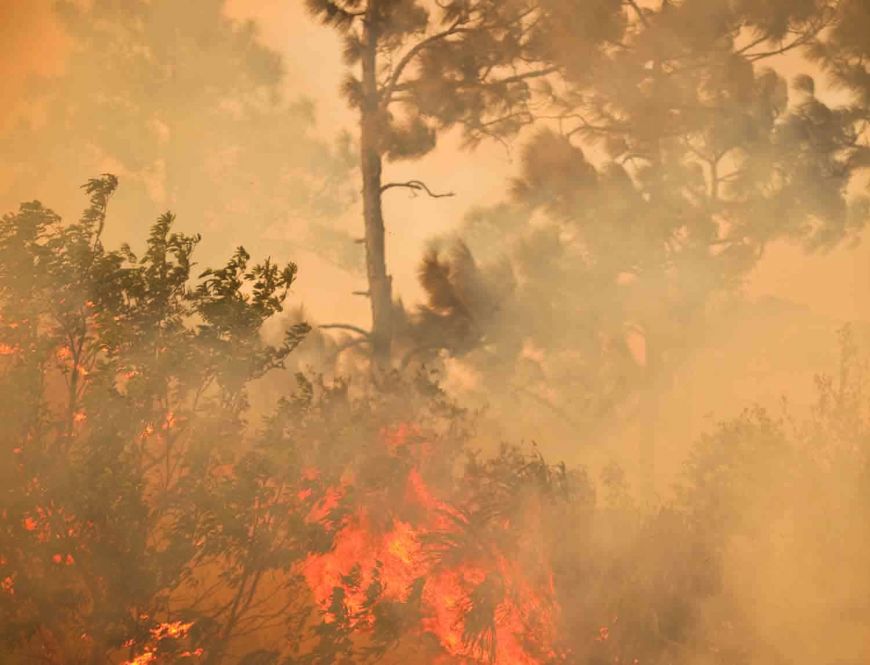
 back to all news
back to all news
New Approach to Wildfire Management

Cognitive mapping offers new approach to wildfire management
Wildfire risk is a defining environmental challenge throughout much of the American West, as well as in other regions where complex social and ecological dynamics defy simple policy or management solutions. Consequently, diverse forms of land use, livelihoods, and accompanying values require trade-offs in land management. For example, the suppression of naturally ignited fires decreases the risks to nearby homes and property. But from an ecological perspective, naturally ignited fires of low severity are beneficial in restoring the natural balance of ecosystems.
Addressing wildfire risk requires grappling with these trade-offs at multiple levels—given the need for action by individuals as well as by large and diverse stakeholder groups—and under conditions of considerable complexity.
Perception of the trade-offs—whether certain strategies are seen to offer either positive or negative outcomes—is also key in understanding how individuals and groups can find common ground in successful land management.
In their study, “Cognition of complexity and trade-offs in a wildfire-prone social-ecological system,” published in Environmental Research Letters (Dec. 19, 2019), researchers evaluated how individual and collective perception of trade-offs varies with the complexity of the management challenges.
The research team—which included SEAS Assistant Professor Paige Fischer—found that the Eastern Cascades Ecoregion (ECE) in central Oregon provided a “natural laboratory” for studying cognition of wildfire risk. The ECE features considerable social-ecological complexity and has experienced significant increases in wildfire risk over the last several decades.
In collecting data for their study, researchers conducted interviews to determine how the outcomes of various land management strategies are perceived—covering issues such as timber production, fire suppression, tree-thinning and habitat restoration. Valued outcomes included economic, cultural, environmental, and other dimensions recognized to affect individual and shared well-being.
The resulting responses allowed the researchers to construct a “cognitive map” of the region. Cognitive maps, the study notes, depict mental models, which in turn represent how individuals make sense of the world around them by acquiring and testing assumptions about causal relationships.
Ultimately, those concerned with land management challenges may find encouragement in the research team’s findings.
The study—which highlights the value of collaborative decision-making processes—reports that “results suggest that groups and individuals may be more likely to appreciate trade-offs, which may in turn facilitate new forms of problem-solving.”
EXCEPTS FROM THE STUDY:
“Although policy-makers and researchers often strive to identify and promote win-win solutions that produce desirable outcomes while avoiding adverse consequences, it is increasingly recognized that such solutions may overlook trade-offs...
“First, an understanding of trade-offs can improve policy design. Basic awareness of trade-offs can facilitate the types of decisions that avoid unintended consequences. Second, appreciation of trade-offs can facilitate buy-in or compliance when such awareness leads stakeholders to appreciate that decisions must account for objectives besides their own. Finally, stakeholders' perceptions of the dynamics that comprise a complex social-ecological system are more than 'just' perceptions. Stakeholders have agency within these systems, and their beliefs shape their actions, with implications for valued outcomes resulting from both individual—and collective—level environmental management behaviors...
“This study demonstrates that certain features of complex systems—specifically the cognitive processes by which people perceive cause-and-effect relationships—can be measured and evaluated. Challenges facing the American West, such as invasive species and water resource allocation, present clear opportunities for such research, and we propose that our approach has relevance across systems where environmental change compels individual and collective action.”
Read the full research paper, “Cognition of complexity and trade-offs in a wildfire-prone social-ecological system,” published in Environmental Research Letters.

